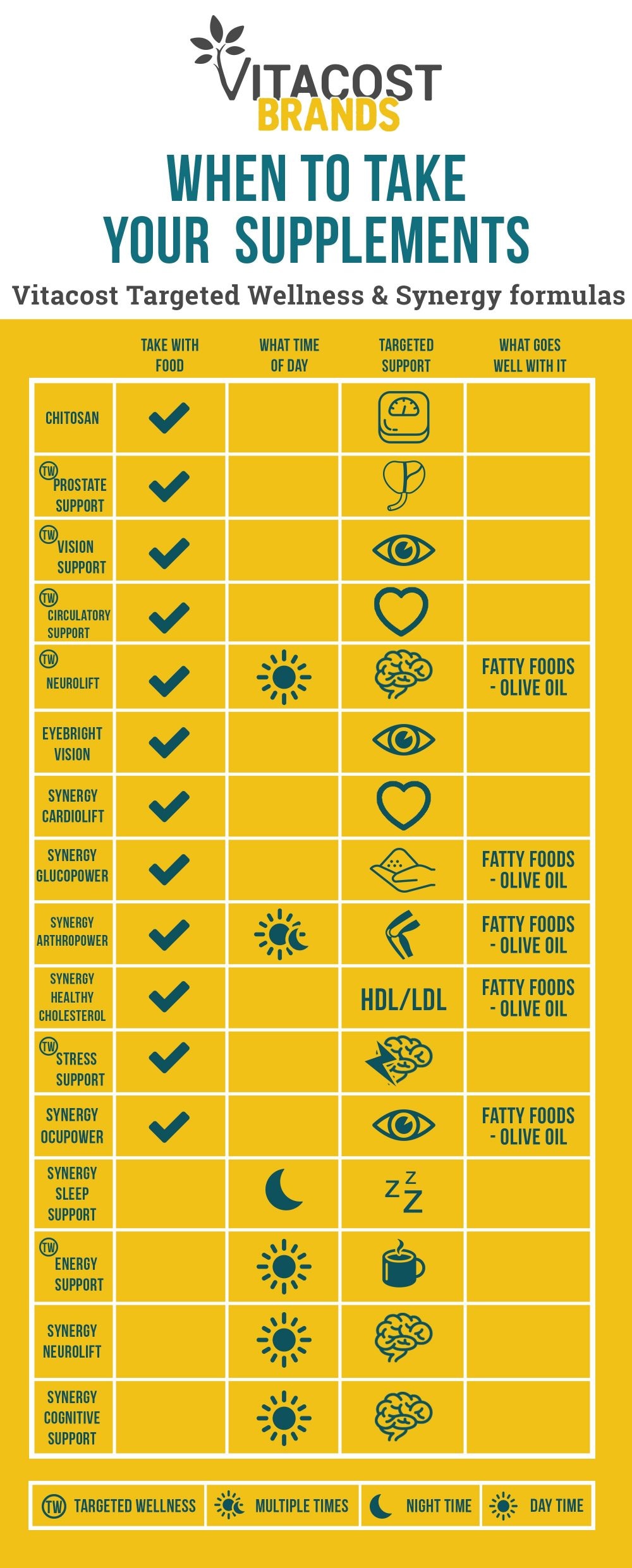Hypertension is a common chronic disease worldwide and a major risk factor for cardiovascular disease . It is characterized by several pathophysiologic pathways including endothelial dysfunction, vascular inflammation, increased arterial stiffness . However, little is known whether supplementation of vitamins and minerals may have a preventive role in hypertension development. Multivitamins are supplements including a wide-range of essential nutrients at amounts typically found in a healthy diet. Multivitamins are the most commonly used dietary supplement in the US and its prevalence has steadily increased during the past few decades . In the National Health and Nutrition Examination Survey study, more than one-third of US adults reported current daily multivitamin use .
Multivitamins were also commonly taken in several countries in European Prospective Investigation into Cancer and Nutrition study. Thus, these data highlight the importance of monitoring dietary supplement use and evaluating its benefits and risks in chronic disease prevention including hypertension. Vitaminsand minerals serve crucial functions in almost all bodily processes and must be obtained from foods or supplements, as our bodies are unable to make them.
In this article, common drug interactions with vitamins and minerals are discussed, along with suggestions on how the pharmacist should manage these interactions. A recent review of the research concluded that there is insufficient evidence for the use of dietary supplements for reducing the risk of cardiovascular disease, cancer and all-cause mortality. While supplementing some nutrients may have a small benefit, others may cause harm, particularly in certain people such as smokers.
Your best chance of reducing chronic disease risk comes from eating a healthy diet incorporating a wide range of plant foods. In the third study, the researchers examined whether high doses of multivitamins and minerals could prevent heart attacks, strokes and death in 1,700 people who have already had a heart attack. After an average follow-up of five years, the results didn't show a difference between participants who took dietary supplements and those who didn't.
In the present study, we excluded 10,227 women with baseline history of hypertension defined as having a self-reported SBP ≥140 mm Hg or DBP ≥90 mm Hg, or being on antihypertensive treatment. We also excluded 926 women with missing information on multivitamin supplement use and lifestyle, clinical and dietary factors considered as covariates. Thus, 28,157 women were included in analysis with follow-up from baseline through 2012. The trial ended in March 2004 and women who were still alive and eligible and willing to be followed on an observational basis (89%) were included in the observational follow-up. Written informed consent was obtained from all participants and this research was approved by the institutional review board of Brigham and Women's Hospital, Boston, MA. There are many different types of drug interactions with vitamins and minerals, ranging in severity and significance.
Patients may not think to share information with their pharmacist about the vitamins and minerals they take, or they may feel the substances are harmless and irrelevant to their medication regimen. Because of the likelihood of an interaction, pharmacists should question patients not only about the drug allergies they have but also about the vitamins and minerals they ingest daily. Although this article did not discuss herbal products and other nutraceuticals, use of these products is important to document as well.
Without this information, pharmacists cannot provide the necessary screening for interactions. Information about the use of vitamins, minerals, herbal products, and other nutraceuticals should be documented in patients' records for future reference. Bias in observational studies is common but is minimized in well-conducted RCTs. In observational data sets, there are often many possible variables that researchers may choose to adjust for, potentially creating a situation where multiple hypotheses are tested but only some presented. Multivitamin supplements typically aim to mirror the combination of low-dose essential vitamins and minerals that would be obtained through a healthy diet e.g. the DASH diet. Several vitamins and minerals have been suggested to have important roles in the mechanistic pathways in hypertension development.
Nutrients with antioxidant properties may inhibit oxidative stress caused by increased reactive oxygen/nitrogen species, which is involved in the pathophysiology of hypertension . Vitamin D inhibits the expression of renin gene, which reduces activity of the renin-angiotensin-aldosterone system, leading to favourable effects on volume homeostasis and BP reduction . Magnesium may have BP lowering effects as a calcium channel blocker. Magnesium also regulates intracellular calcium, sodium, and potassium; low magnesium levels have been linked to insufficient amounts of prostaglandin E1, which leads to vasoconstriction and increases BP . Potassium promotes vasodilation through stimuli of the sodium pump lowering cystolic calcium . Moreover, a Cochrane review of randomized trials testing potassium supplementation reported nonsignificant BP lowering effects however, there was heterogeneity between trials .
If you're a healthy adult, taking a multivitamin won't lower your risk of heart attack, stroke or death from cardiovascular disease. Preventive Services Task Force concluded that there is insufficient evidence to support any benefit from vitamin and mineral supplementation for the prevention of cancer or cardiovascular disease. The new studies, published today (Dec. 16) in the journal Annals of Internal Medicine —including two new clinical trials and one large review of 27 past clinical trials conducted by the U.S. Preventive Services Task Force — found no evidence that taking daily multivitamin and mineral supplements prevents or slows down the progress of cognitive decline or chronic diseases such as heart diseases or cancer. When vitamins were first studied a century ago, it seemed like a wonderful solution for nutritional deficiencies. Scurvy, rickets and other diseases that arose from a lack of certain vitamins could now be more easily prevented.
This eventually gave rise to the idea of a daily multivitamin that could fill in nutritional gaps and maybe even provide additional health benefits, like preventing heart disease and cancer. But, now with improvements to the modern diet, recent research doesn't quite back up the need for a multivitamin. According to the NIH, it's also generally recommended that women who want to become pregnant get 400 micrograms of folic acid a day to lower the risk of neural tube defects in newborns. However, unless you're planning to become pregnant or are pregnant or have a particular nutrient deficiency, you probably don't need a multivitamin, Rumsey says.
The most common deficiencies in the U.S. are iron, calcium, and vitamins B12 and D, Keatley says. Being deficient in any one of these will make you feel tired, which is a pretty vague symptom. Still, if you're struggling with fatigue, it's worth asking your doctor for a blood test to see if a deficiency could be to blame. It is important for pharmacists to be able to identify patients who are most at risk. Risk factors for poor outcomes from drug interactions include use of multiple medications and/or supplements, older age, inadequate kidney or liver function, and the use of medications with narrow therapeutic indexes. Patients with these risk factors should be targeted for interventions to prevent drug interactions with vitamins and minerals.
Other drugs may affect multivitamins and minerals, including prescription and over-the-counter medicines, vitamins, and herbal products. For those who eat a healthful diet, a multivitamin may have little or no benefit. A diet that includes plenty of fruits, vegetables, whole grains, good protein sources, and healthful fats should provide most of the nutrients needed for good health. When it comes to specific vitamins and minerals, some Americans get less than adequate amounts, according to criteria set by the National Academy of Medicine. For example, more than 90% of Americans get less than the Estimated Average Requirement for vitamin D and vitamin E from food sources alone. The researchers concluded that multivitamins don't reduce the risk for heart disease, cancer, cognitive decline (such as memory loss and slowed-down thinking) or an early death.
They also noted that in prior studies, vitamin E and beta-carotene supplements appear to be harmful, especially at high doses. Now days we all need vitamins and minerals supplements because due to over stress full lifestyles and bad food habits. Considering this in our daily practicing we seen deficiency of essential vitamins. If you're planning a surgery, be aware that some dietary supplements can interact in a harmful way with medications you need to take before, after, or during that surgery. Your health care professional may ask you to stop taking dietary supplements two or three weeks before the procedure to avoid potentially dangerous changes in heart rate, blood pressure, or bleeding risk.
Consequently, combining dietary supplements and medications could have dangerous and even life-threatening effects. For example, drugs for HIV/AIDS, heart disease, depression, treatments for organ transplants, and birth control pills are less effective when taken with St. John's Wort, an herbal supplement. Depending on the medication involved, the results can be serious. Three studies published Monday add to multivitamins' bad rap. One review found no benefit in preventing early death, heart disease or cancer. Another found that taking multivitamins did nothing to stave off cognitive decline with aging.
A third found that high-dose multivitamins didn't help people who had had one heart attack avoid another. The findings by Kim et al6 may not ultimately be surprising in 2018. Now that diets are more varied, supplemented, and fortified, diseases of frank vitamin deficiency are rare, and the most commonly occurring diseases have a multifactorial cause. It may be unlikely for a supplement ingested once a day to confer a health benefit, and the study by Kim et al6 provides no reason to take one.
The new findings are in line with those of previously published studies that have found no benefits from dietary supplements, including B vitamins and antioxidants, and even suggested possible harms. Results of clinical trials involving tens of thousands of people have shown that beta-carotene, vitamin E and possibly high doses of vitamin A supplements actually increase death rates, the researchers said. Despite what some ads may imply, a multivitamin won't magically turn you into an energetic, incredibly healthy superhero.
What it can do is cover for deficiencies in your diet, Gina Keatley, a certified dietitian-nutritionist practicing in New York City, tells Allure. "The more processed a food item is, the more likely it is that it will be deficient in vitamins and minerals," she explains. A multivitamin is supposed to provide for what processing removes from our food. Registered dietitian nutritionist Keri Gans, author of The Small Change Diet, points out that multivitamins can help us make up for nutritional shortfalls when we're not getting an adequate range of whole foods in our diets. They're "almost like a safety net to ensure that you are consuming plenty of important vitamins and minerals," she says. Hypertension is a major risk factor for CVD and is characterized by multiple pathophysiologic pathways such as endothelial dysfunction, vascular inflammation, increased arterial stiffness .
Salt reduction is considered as one of the most important dietary advises in the prevention of hypertension . However, besides salt reduction, there are other dietary preventive strategies shown to be of importance in both hypertension prevention and BP reduction as well as lowering subsequent risk of CVD . The Dietary Approaches to Stop Hypertension diet has been pointed out as a promising dietary intervention .
The DASH diet is rich in fruits, vegetables, whole grains, and low-fat dairy products providing adequate intakes of several essential vitamins and minerals . Seek emergency medical attention if you think you have used too much of this medicine. An overdose of vitamins A, D, E, or K can cause serious or life-threatening side effects. Iron and other minerals contained in a multivitamin can also cause serious overdose symptoms if you take too much.
Certain minerals contained in a multivitamin may also cause serious overdose symptoms if you take too much. Every time you visit a health care professional's office, bring a list of all the dietary supplements and medications you are currently taking. Include the dosages and how many times a day you take them. Some people find it easiest to throw all their dietary supplements and medications in a bag to bring to the medical visit. If you're a healthy guy and have no major dietary restrictions, you don't need a multivitamin. A pill containing 20 vitamins and minerals is never going to replicate the complex mixture of healthful compounds in whole foods.
Many people take a multivitamin end up using them to justify less healthy eating habits. While getting adequate amounts of essential vitamins and minerals is important to health, more isn't always better. Some vitamins and minerals can be harmful when we have too much, and in people with certain health conditions or those taking certain medications, any amount of supplemental vitamins and minerals can be a problem. So if you are taking prescription medications or have any health issues, always speak with your doctor before starting a dietary supplement. In most cases, that's probably true for multivitamins, according to the NIH. The only damage may be to your wallet — and your money is better spent on whole foods.
But, megadoses — especially of fat-soluble vitamins, like A, K and E, that don't get flushed out in urine — could harm your health, so avoid individual supplements, unless your doctor approves them. The risks of taking a multivitamin are low—in fact, Dr. Cherian chooses to take a multivitamin himself every day. While multivitamins pack many nutrients, your body may not actually be in need of most of the contents. He reminds us that if you have a specific nutrient deficiency, it's always best to supplement with that specific nutrient (e.g., vitamin D or B12). It's a more targeted way to meet your health goals and rebalance your body. Whatever you choose, always focus first and foremost on eating a well-balanced diet before supplementation.
Large clinical trials have repeatedly found that multivitamins don't improve the health of the average person. Other drugs may interact with multivitamins with fluoride, including prescription and over-the-counter medicines, vitamins, and herbal products. Tell each of your health care providers about all medicines you use now and any medicine you start or stop using. Most people do not need to take vitamin supplements and can get all the vitamins and minerals they need by eating a healthy, balanced diet. Other drugs may interact with multivitamins with iron, including prescription and over-the-counter medicines, vitamins, and herbal products. Every effort has been made to ensure that the information provided by Cerner Multum, Inc. ('Multum') is accurate, up-to-date, and complete, but no guarantee is made to that effect.
Multum's drug information does not endorse drugs, diagnose patients or recommend therapy. The absence of a warning for a given drug or drug combination in no way should be construed to indicate that the drug or drug combination is safe, effective or appropriate for any given patient. Multum does not assume any responsibility for any aspect of healthcare administered with the aid of information Multum provides. The information contained herein is not intended to cover all possible uses, directions, precautions, warnings, drug interactions, allergic reactions, or adverse effects. If you have questions about the drugs you are taking, check with your doctor, nurse or pharmacist.
An Annals of Internal Medicine study by Johns Hopkins researchers concluded that multivitamins don't reduce the risk for heart disease, cancer, cognitive decline, or early death. The researchers also noted that vitamin E and beta-carotene supplements actually appear to be harmful, especially at high doses. Many people take vitamins and dietary supplements, sometimes to manage deficiencies. No scientific evidence suggests that the time of day at which a person takes them reduces or enhances their effectiveness. Nutrition research can be a contentious field, with experts arguing about what's really good for you.
(Is coffee shaving years off your life or giving you a health boost?) But across the board, peer-reviewed, placebo-controlled scientific studies have consistently shown that vitamin supplements don't prevent disease. And, in some cases, they might increase your risk of cardiovascular disease, cancer, and mortality. Vitamin D Deficiency Symptoms and Treatment Vitamin D deficiency has been linked with rickets, cancer, cardiovascular disease, severe asthma in children and cognitive impairment in older adults. Causes include not ingesting enough of the vitamin over time, having limited exposure to sunlight, having dark skin, and obesity. Treatment for vitamin D deficiency involves obtaining more vitamin D through supplements, diet, or exposure to sunlight.
Can Multivitamin Be Taken By Anyone Most healthy people who eat a balanced diet probably don't need a multivitamin. Before taking any supplement, even a multivitamin, talk to your doctor, especially if you are on other medications or have any health conditions. Too much of some vitamins may interact with your medications or cause your condition to worsen. Your doctor can discuss your specific situation to see if there's any benefit — or harm — for you in taking a multivitamin. That said, Dr. Cherian adds there's no harm in taking multivitamins (they aren't "bad for you), and the potential benefits may make them worth taking for some people.
"Whenever my patients ask me about taking multivitamins, I tell them to consider taking one daily because there may in fact be benefits and there are no known risks to taking a daily multivitamin," he says. Fabricant has said that dietary supplements spiked with prescription drugs are "the largest threat" to consumer safety. Since 2008 there have been recalls of more than 400 such products, mostly those marketed for bodybuilding, sexual enhancement, and weight loss, according to the FDA. There's no standard definition for what needs to be in a multivitamin, specifically what nutrients it should have and in what quantities, according to the NIH. However, there are a few common vitamins and minerals found in a range of multivitamins, says registered dietitian nutritionist Beth Warren, founder of Beth Warren Nutrition and author of Living a Real Life with Real Food. These include calcium, magnesium, vitamin D, several B vitamins, vitamin A, vitamin K, potassium, iodine, selenium, borate, zinc, manganese, molybdenum, beta-carotene, and iron.
"A multivitamin can't take the place of eating a variety of foods and food groups," Alissa Rumsey, a registered dietitian in New York City and founder of Alissa Rumsey Nutrition and Wellness, tells Allure. "Vitamins and minerals found in foods are more readily absorbed and used than those found in supplements." That said, multivitamin use isn't totally cut and dry, and some people may benefit from it, according to nutritionists. Here's what the experts want you to know about multivitamins, plus how to tell whether they're right for you.
We studied 28,157 women from the Women's Health Study aged ≥45 years and free of cardiovascular disease, cancer and hypertension at baseline. Women reported information on a wide range of lifestyle, clinical and dietary factors, including multivitamin and other supplement use at baseline. Hypertension was identified on baseline and annual follow-up questionnaires. Incident hypertension was defined as either a new diagnosis of hypertension by a physician, initiation of antihypertensive medication, newly reported systolic BP ≥140 mmHg, or diastolic BP ≥90 mmHg during follow-up.


























No comments:
Post a Comment
Note: Only a member of this blog may post a comment.